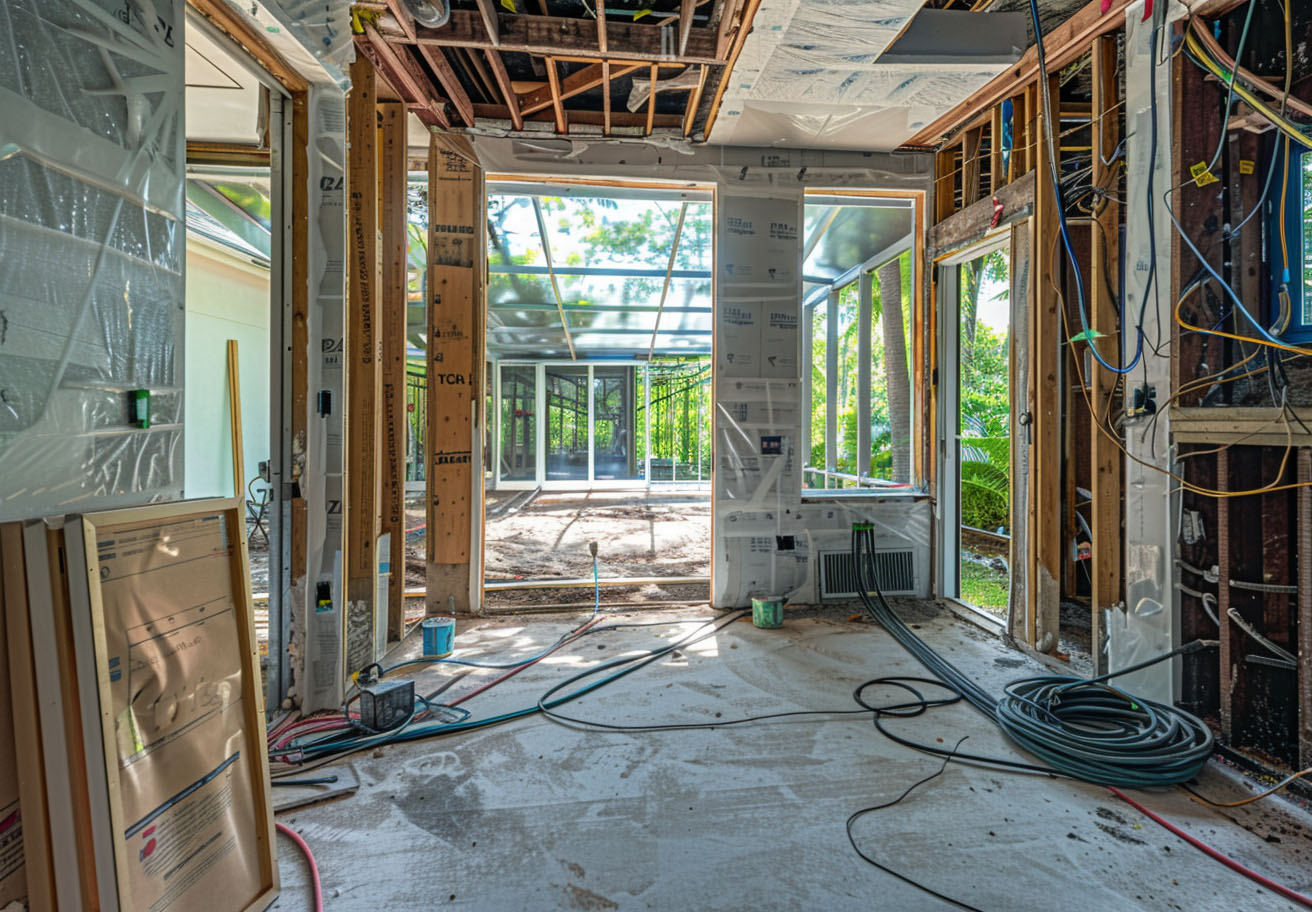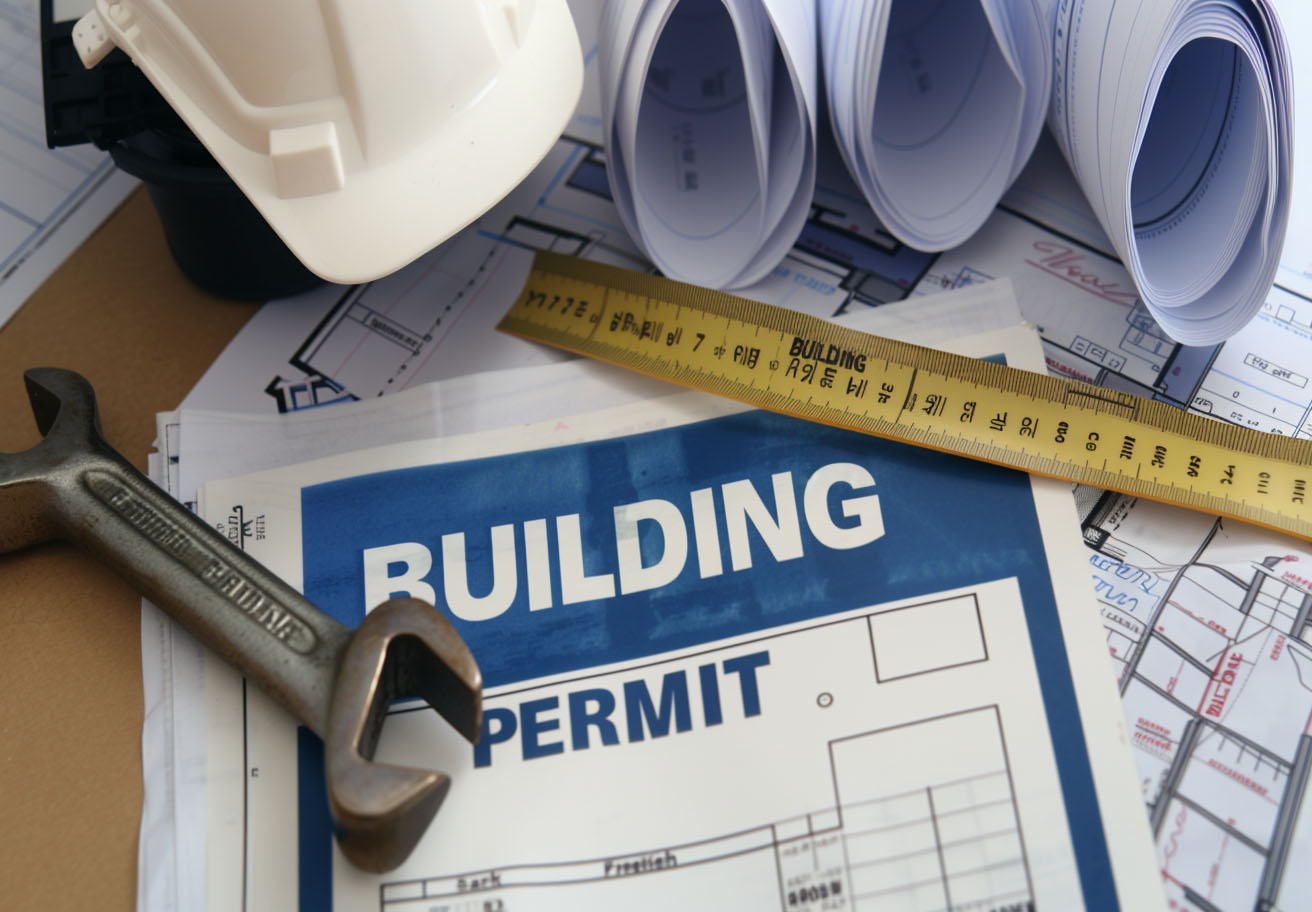

When planning a home addition or renovation in Florida, understanding the necessary permits is crucial to ensure compliance with the Florida Building Code (FBC). This blog will outline the types of permits typically required for such projects and introduce Dago Design Studio, experts in navigating these requirements.
Types of Permits Required for Home Additions and Renovations
Building Permit
A building permit is required for most construction projects, including home additions and significant renovations. This permit ensures that the structural aspects of your project comply with the FBC.
Structural Changes
If your project involves altering the structural components of your home, such as adding new rooms, expanding existing spaces, or modifying load-bearing walls, a building permit is necessary.
Major Renovations
Major renovations, including extensive interior remodels that affect the structure or layout, also require a building permit.
Electrical Permits
Electrical Work
Electrical permits are required for any modifications to your home’s electrical system. This includes:
New Wiring
Installing new electrical wiring, whether for additional rooms, upgraded systems, or new outlets and fixtures, requires an electrical permit.
Service Upgrades
Upgrading your electrical service panel or making significant changes to your home’s electrical capacity necessitates a permit to ensure safety and compliance.
Plumbing Permits
Plumbing Work
Plumbing permits are essential for any changes or additions to your home’s plumbing system.
New Installations
Installing new plumbing fixtures, such as sinks, toilets, or showers, or adding plumbing lines for a new bathroom or kitchen requires a plumbing permit.
Modifications
Modifying existing plumbing, including rerouting pipes or upgrading systems, also necessitates a permit.
Mechanical Permits
HVAC and Mechanical Systems
Mechanical permits are required for work on your home’s heating, ventilation, and air conditioning (HVAC) systems.
New HVAC Installations
Installing new HVAC systems, including ductwork, requires a mechanical permit to ensure the systems are installed safely and efficiently.
System Upgrades
Upgrading or replacing existing HVAC systems also necessitates a mechanical permit.
Additional Considerations
Specialty Permits
Depending on the scope of your project, you may need additional permits for specific installations or modifications.
Roofing Permits
If your renovation involves replacing or significantly repairing your roof, a roofing permit is required to ensure compliance with local building codes.
Environmental Permits
For projects that may impact the local environment, such as those near wetlands or protected areas, environmental permits may be necessary.
Consulting with Experts

Why Consult with Dago Design Studio?
Navigating the permit process can be complex. Dago Design Studio specializes in helping homeowners comply with all necessary regulations, ensuring that your home addition or renovation project meets the FBC requirements. They offer expert guidance from planning through completion, helping you avoid costly delays and ensuring your project is done right.
Steps to Take Before Starting Your Project
Verify Permit Requirements
Always check with your local building department to verify specific permit requirements for your project. This step can save you time and prevent legal issues.
Gather Necessary Documentation
Ensure that you have all required documentation, including detailed plans and specifications, when applying for permits.
Schedule Inspections
Arrange for inspections as required by the Florida Building Code to ensure compliance throughout the construction process.
Conclusion
Understanding the permits required for home additions and renovations in Florida is essential for ensuring compliance with the Florida Building Code. Whether your project involves structural changes, electrical work, plumbing, or HVAC installations, obtaining the necessary permits is crucial. Dago Design Studio can guide you through the permitting process, providing expertise and support every step of the way.



